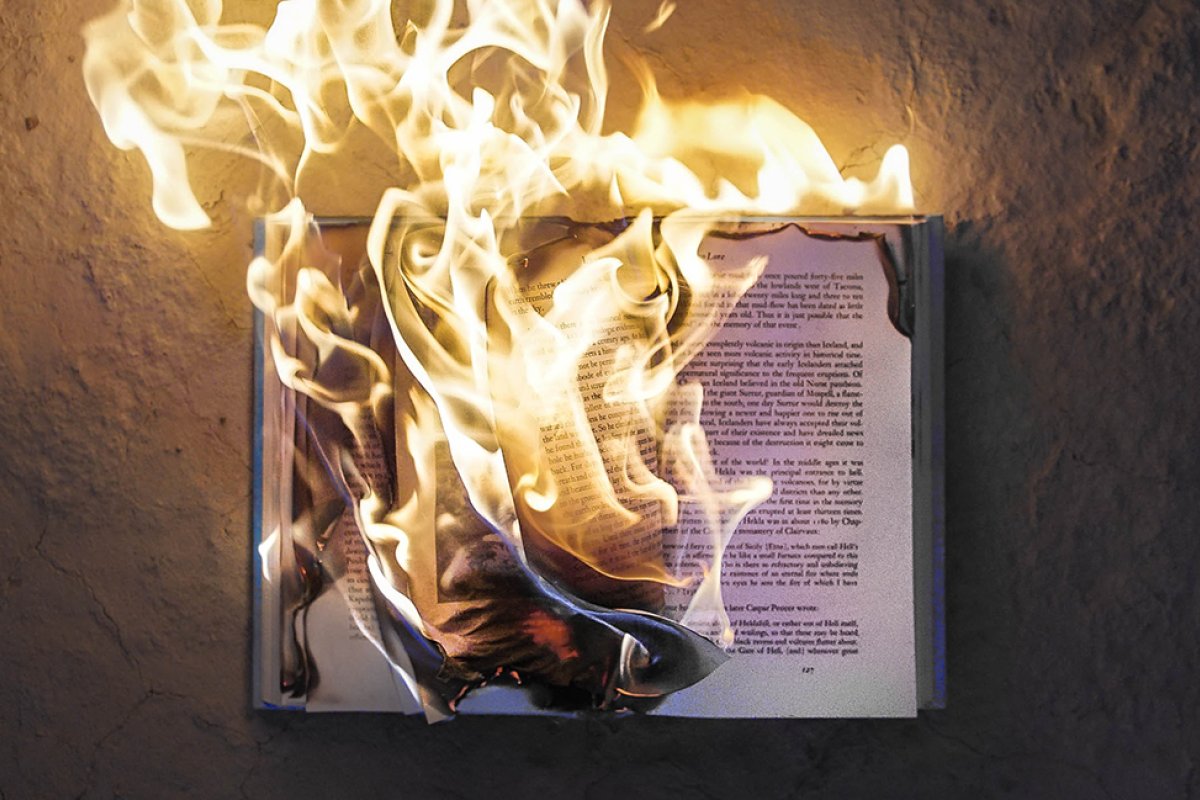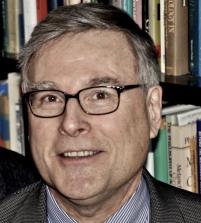
Banning Books; Banning Brains
Neglect of commitments to education has profound social and political implications.
§1.
The current state of literacy in America has caught little attention, but I think it shows the sad decay of the cultural power of the religions. Ironically, it is religious people, especially some brands of Protestant Evangelicals, who have neglected their heritage’s previous commitments to education, and this neglect has profound social and political implications. This might yet be another and distinctive form of the irony of American "religious" history.1 Let's start with literacy and move toward religion.
According to Nicholas Kristof in a New York Times Op-ed, two-thirds of fourth grade students struggle to read.2 That figure is based on research by the NAEP Reading Assessment which shows a considerable drop since 2019.3 The societal reality in the US is that one in five adults struggle with literacy. There are, no doubt, many reasons for this decline in literacy: the global Covid pandemic, shifts in population, poverty, school funding, and also, as the op-ed notes, the disastrous result of failing to teach phonics. The problem of literacy may not seem to be related to religion, but a bit of historical digging unearths surprising insights.
The issue is not only about a curriculum, debates about theories of reading, or the tumultuous past few years. The social and political consequences of declining literacy are not hard to grasp. People who struggle to read have an extremely difficult time navigating a media-driven society. This causes greater and more pernicious social stratification and a decrease in many people's access to social goods and services. Illiteracy means that people can be the prey of schemes that are, literally, too good to be true (think of scams on the poor or the elderly, the constant drumbeat of "fake news," and, thanks to some "news" networks, the spread of election conspiracy theories).
Matters go deeper in social life. The illiteracy rate is higher among the incarcerated even as it is known that literacy cuts down on recidivism. Since the US has the largest incarcerated population in the world, this is a crucial social fact. Of course, there are literacy programs like Literacy Chicago or the Center for the Future of Libraries, to name just two in Chicago, as well as volunteer programs around the nation. Yet the idea of a fully literate populace is clearly a distant dream. Ironically, a society built on the power of an educated citizenry wallows in a morass of illteracy.
§2.
If we dig a bit further into American social history, things become more complex, and the irony appears even deeper. One should recall that many universities and colleges in the US were founded by institutions of religious faith, primarily the Christian faith, Protestants and Catholic. Consider the colonial colleges: Harvard founded in part to educate puritan pastors, Yale and Dartmouth (Puritan), Princeton (Presbyterian where no less than Jonathan Edwards served as President), The College of William and Mary (Church of England), Georgetown (Catholic, Jesuit), Rutgers University (Dutch Reformed Church) and Santa Clara (Catholic, Jesuit). In the nineteenth and twentieth centuries, many more institutions of higher learning throughout the country were founded by religious communities; consider Brandeis University (sponsored by the Jewish community), Notre Dame (Catholic), Northwestern and Duke ( Methodists), and the University of Chicago (Baptists), to name but a few. To be sure, there were those founded explicitly without religious affiliation (Johns Hopkins; Stanford) and certainly the one-hundred-six great land grant universities insisted on the separation of Church and State. Nevertheless, it is difficult to imagine higher education, let along primary and secondary education, in this nation if one were to excise the influence of religious institutions.
This picture becomes even more complex if one considers the European background to American schools, and, for good and ill, the overseas missions and colonizing projects of the modern era. In terms of Europe, the confluence of the invention of the printing-press and various reform movements, Protestant and humanist, spread literacy and the founding of new schools. Martin Luther made education accessible to more women in part in order to read and know the Word of God. Of course the fate of women's education was a rough one! Yet Luther's co-worker Phillip Melanchthon was known as the "Teacher of Germany" for his role in establishing the educational system that still has some force today.
Even before the Reformations and the Renaissance, cathedral schools and then later universities, beginning with Bologna in 1088 and its motto "Nourishing Mother of the Studies," had religious roots.4 The same is the case with Muslim and Jewish educational institutions. Of course, as Christian missions and Islamic movements began spreading throughout the world, in violent as well as peaceful ways, they spread literacy as well. Jesuit missions as well as Protestants established seminaries and schools that spread literacy and in the case of the Jesuits peserved some indigenous languages. For instance, in the case of Domingo de Vico, the first Theologia Indorum was written by the Dominican in the Mayan's K'iche.5 The irony, of course, is that these missions established schools but also traveled with colonizing powers and so educators were complicit in the destruction of indigenous lives and cultures.
What drove this emphasis on education and literacy? For the Reformers of various stripes, and so also the heritage of American evangelicals, the issue was the ability of people to read scripture, the Word of God (they believed), in their own tongue. This was the shift, as B. A. Gerrish nicely put it, from the priestly sacrament to the sacramental Word, to scripture as the main means of grace for Christians.6 In terms of missions, the concern, at its best, was to present Christianity in terms that people could understand and that meant the arduous task of translation. (Here too the Jesuit missions are important.) Of course, things were somewhat different for Muslims and Jews. Language study was necessary to be able to read the Qur'an in its original Arabic. Jews too needed to read Hebrew, and that demanded language study as well as the reading and interpretation of the sacred texts. The point being that the "Religions of the Book" (although they have different books) were drivers for literacy and the work of textual interpretation on a global scale.
The irony, then, is that the religions are often depicted as driven by fear and oppressive power, which is to some extent true. But these religions have, nevertheless, also been forces of literacy, knowledge, and even enlightenment, and this educational imperative is rooted in believers’ core convictions. But that fact brings us to the final irony and a return to the current religious and cultural scene in the US.
§3.
There is no doubt that in spite their religious heritage Christian nationalists and political leaders like Ron DeSantis seek to ban books, especially those that teach about CRT (Critical Race Theory), which is the current educational demon for those on the Right. Likewise, interest in literacy no matter what demographic is clearly not a priority for many politicians, nor is universal education. Here is the irony of American religious history at this crucial moment. The Christian, and especially Protestant, tradition as well as Jews and Muslims that have historically and globally been drivers of literacy and education are now, in the guise of conservative nationalism, weaponized against books, educational programs, and with that literacy itself. For when you decide to ban books what, at root, one is doing is banning brains. We see the violent, ignorant, and racist consequences of such misdirected policies in every sector of American society.
1One is reminded of Reinhold Niebuhr's The Irony of American History (Chicago: The University of Chicago, 2008).
2https://www.nytimes.com/2023/02/11/opinion/reading-kids-phonics.html
3https://www.nationsreportcard.gov/reading/nation/achievement/?grade=4
4See The Impact of Academic Research: On Character Formation, Ethical Education, and Communication in Late Modern Pluralistic Societies, eds. W. Schweiker, et.al. (Leipzig: Evangelische Verlagsanstalt, 2022).
5See The Americas' First Theologies: Early Sources for Post-Contact Indigenous Religion, edit. and trans. by Garry Sparks, et.al. (Oxford, 2017).
6B. A. Gerrish, Tradition and the Modern World (Chicago: The University of Chicago Press, 1978).
Image by Freddy Kearny via Unsplash


